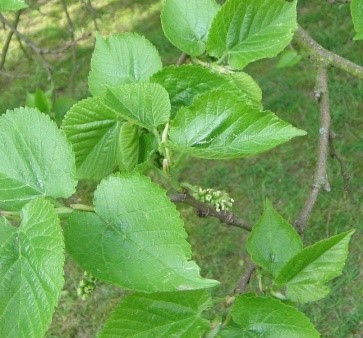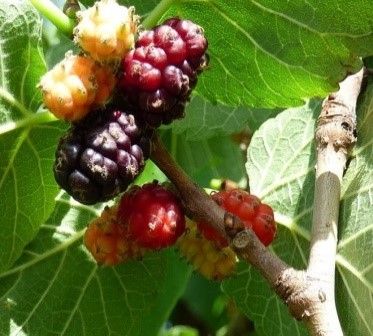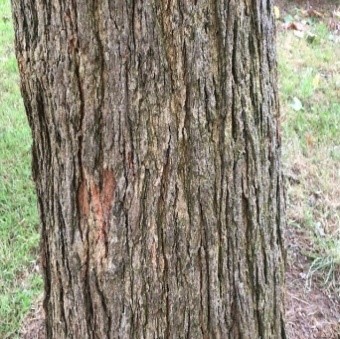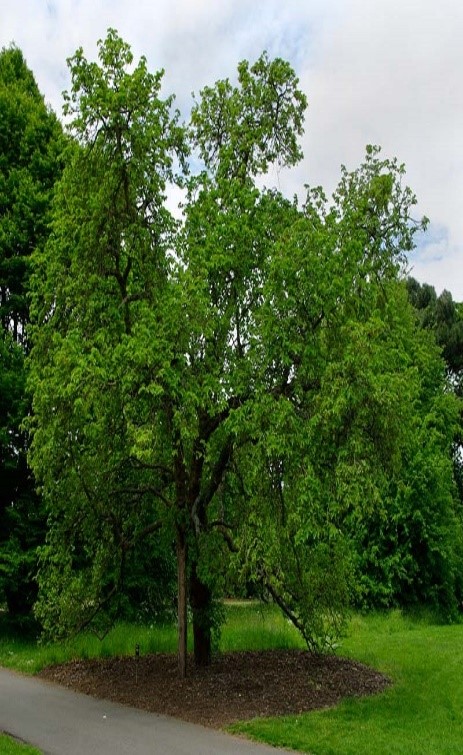Trees
Morus nigra L.
Morus nigra L.
Description :
Back
mulberry or Blackberry is a small deciduous tree cultivated worldwide, mainly
for its edible fruits. Its leaves can be used to feed silkworms for the silk
production. This plant is a dark green coloured deciduous shrub that grows up
to 5-10m tall. The trunk is short. The stalk that attaches the leaf blade to
the stem is short. The leaf blades are asymmetrical and broad at the base and
shortly acuminate on top. The flowers are small and not very attractive. Fruits
are between 1-3cm in length and 2-3 cm in diameter. The fruit is black, glossy,
sweetish sour, and juicy. Its shoots and branches have yellowish colour.
Distribution :
Black mulberry originates from Pakistan, India, Iran and Afghanistan. It
has been cultivated in the Mediterranean area since ancient times. Black
mulberry is now naturalized and cultivated. This plant is particularly favoring
the places with dry and hot summers but is can also be cultivated in tropical
humid regions at above 1000m and up to 2000m altitude and in areas where annual
rainfall is between 500-2000mm.
Uses :
It has many uses including edible,
medicinal, agroforestry and many others. Fruit can be eaten as raw as well as
dried and also can be cooked and used in preservers. The mulberry has a long
history of medicinal use in Chinese medicines, almost all parts of the plant are
used in one are another way like extracts from roots and leaves can be used for
the antibacterial activity. Fruit has
soothing effect on kidney and can also help to treat the constipation.
Medicines made from the bark are used to treat respiratory problems. The tree
is planted for shade, shelter, as a windbreak, as an ornamental and living
fence. Other uses include are the dyes and fiber manufacturing.
(Lim and Choi, 2019;
Alonzo, 1999)



